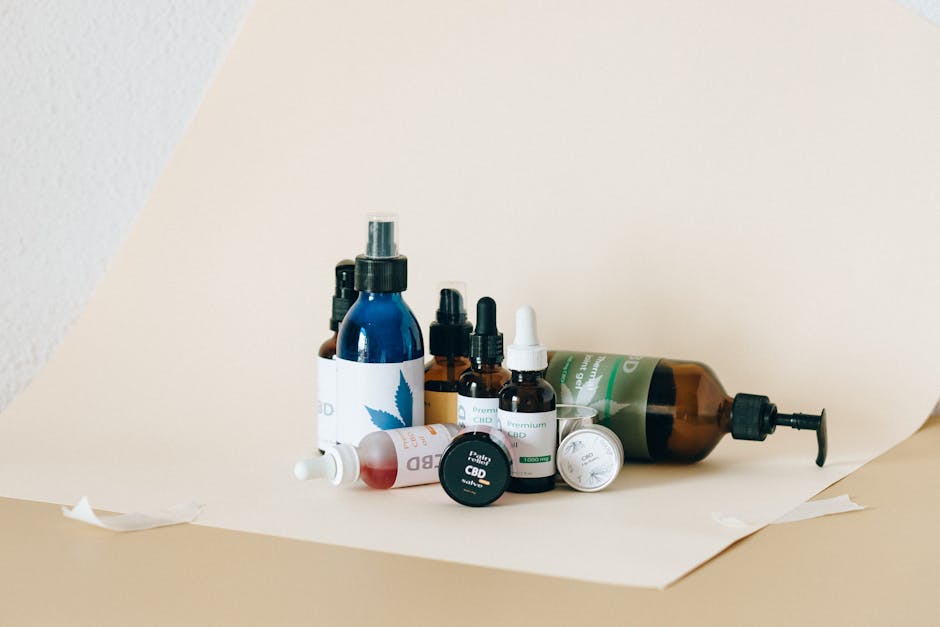AI-Driven Beauty: How Artificial Intelligence Personalizes Skincare
In the ever-evolving world of skincare and beauty, artificial intelligence (AI) is emerging as a key player, transforming the way products are developed and how they cater to individual needs. As consumers become more equipped with knowledge and demand personalized solutions, AI-driven beauty products are gaining traction for their ability to analyze skin types, concerns, and preferences with unprecedented precision. Join us on this deep dive into the role of AI in personalizing skincare, exploring its efficacy and reshaping beauty routines.
The Intersection of Technology and Beauty

Imagine walking into a beauty store and being greeted by a device that instantly analyzes your skin’s moisture levels, elasticity, and overall health, offering tailored recommendations that suit your specific needs. This futuristic experience isn't a figment of your imagination; it's happening now with the rise of AI in skincare.
Technology and beauty have long coexisted, but the leap into AI brings a new level of personalization that was once the realm of science fiction. Artificial intelligence helps companies leverage big data, creating products tailored to individual skin types and concerns based on meticulous input from users. This significant shift enables consumers to achieve their skincare goals more effectively, making AI a revolutionary force in the beauty sector.
Understanding AI-Powered Skincare Technology

AI-driven beauty products typically utilize advanced algorithms that analyze data collected from various sources. This data can include user input about skin type, concerns such as acne or dryness, and even environmental factors like climate or pollution levels. Companies then utilize this information to develop formulations that target specific skin concerns effectively.
Data Collection and Analysis

The foundation of AI-powered skincare lies in data collection. It's through capturing a multitude of inputs that personalized recommendations are made. For instance, apps like Proven Skin Care leverage consumer data to create custom serums built from 47 different skin factors. These factors illuminate how diverse our skin can be, reminding us that a "one-size-fits-all" approach is outdated.
Data sources can also include feedback from users on product efficacy, which helps brands refine their offerings. Continuous learning from user experiences allows for rapid innovation, catering to ongoing changes in skincare needs.
The Role of Machine Learning

At the heart of AI technology is machine learning. Such systems are not static; they evolve through user interactions and feedback, enhancing accuracy over time. By processing vast amounts of data, AI can identify patterns that humans may overlook. For instance, an AI system might discover that individuals with certain skin conditions respond better to specific ingredients, leading to more effective formulations tailored to these needs.
Brands like SkinAI utilize advanced machine learning techniques to customize skincare routines. With multi-faceted assessments that go beyond skin type to include lifestyle factors, their approach represents the future of personalized beauty.
The Impact on Product Formulation

AI is revolutionizing the product formulation process, allowing brands to create more effective formulations with fewer trials and errors. Here’s how:
Custom Ingredients

The use of AI doesn’t just enhance personalization; it optimizes formulations by suggesting ingredient combinations based on skin needs. Consumers are now able to find products that incorporate the latest scientific advancements in skincare. For example, previously, addressing uneven skin tone might have required multiple products; AI can narrow it down to a unique formulation that effectively combines brightening ingredients and hydration agents.
Predictive Analysis

Predictive analysis powered by AI helps brands forecast trends based on real-time data analysis. This allows companies to pivot rapidly, responding to consumer needs with speed that traditional market research cannot match. Imagine a brand that can change its product lineup every season based not on guesswork, but on direct consumer feedback.
A notable illustration of this is Olay’s AI Skin Advisor, which not only analyzes your skin through photos but also recommends products that address specific concerns effectively. This intelligent personalization cultivates a bond between users and brands while enabling more satisfying skincare experiences.
The Efficacy of AI in Skincare

While AI represents the cutting-edge of beauty technology, skeptics often question the efficacy of these AI-driven products. Does the technology actually work as promised?
A Scientific Backing

Recent studies have begun to validate AI's role in skincare personalization. For instance, research published in the Journal of Investigative Dermatology demonstrated that AI algorithms could accurately diagnose skin conditions with a rate comparable to experienced dermatologists. Such findings bolster confidence in AI products and illustrate their potential to deliver notable results.
Additionally, platforms like SkinPassage are employing AI to track results over time, providing feedback on how certain products effect individual skin health. This long-term data can shed light on the efficacy and helps refine recommendations further.
User Experiences Matter

Beyond scientific validation, the real test lies in how consumers perceive these products. As users report their experiences, it’s vital for brands to transparently share results. Anyone who has fallen victim to false skincare promises knows that honesty is paramount in beautifying consumer trust.
Many brands have harnessed user-generated content, showcasing testimonials and before-and-after images that tell compelling stories. For example, Curology enables users to share their journeys, thus creating a community that fosters mutual support and continuous improvement.
The Future of AI in Skincare

As we look ahead, the potential for AI within the skincare industry seems limitless. Here are a few emerging trends that could shape the future landscape:
Enhanced Virtual Consultations

Virtual consultations will continue to gain traction as AI enhances their capabilities. Imagine not having to visit a dermatologist and receiving accurate skin assessments through an app at home. Such accessibility is paving the way for a more informed approach to skincare routines.
Sustainable Practices Using AI
Techniques powered by AI can also boost sustainability in the beauty industry. Brands are using AI to minimize waste, as production can be more efficiently tailored to demand. Furthermore, AI can help identify the best sustainable ingredients, contributing toward eco-friendly practices in formulation.
To delve deeper into this trend, check out our guide on sustainable skincare brands leveraging more innovative practices.
Augmented Reality
AR technology, combined with AI, may offer consumers a glimpse into their skincare potential before applying products. Picture a future where you can visualize how a new regimen might affect your skin health or appearance in real-time. This interaction could amplify user engagement and make skincare more interactive.
Next Steps for Consumers
Now that we've unpacked the potential of AI in skincare, you're likely eager to navigate this new frontier. Here are some steps to get started:
-
Invest Time in Research: Given the numerous products available, take advantage of personalized skincare quizzes provided by brands like L’Oreal and Clinique to understand your skin’s unique needs better.
-
Track Your Results: Keep a skincare journal to monitor how your skin responds to products over time. This data can guide future choices and personalize your routine even further.
-
Engage with Communities: Connect with skincare communities on social media platforms. Users often share insights on products, including their experiences with AI-driven recommendations.
-
Stay Updated: Keep an eye on technology trends and emerging brands that embrace AI. The rapidly evolving space means you have plenty of opportunities to discover products that cater to your specific needs.
Final Thoughts
Navigating the skincare landscape can be daunting, but with AI-driven beauty products gaining momentum, there's never been a more opportune time for consumers. Bridging the gap between science and self-care, AI has the potential to personalize your skincare routine like never before, allowing you to achieve your goals in a more informed manner.
The journey toward optimal skin health is filled with discoveries—each swatch, serum, and scan contributing to a deeper understanding of what works best for you. As this technology continues to advance, ask yourself: how are you allowing AI to tailor your beauty journey? Embrace the change, and take the first step towards smarter skincare today!



